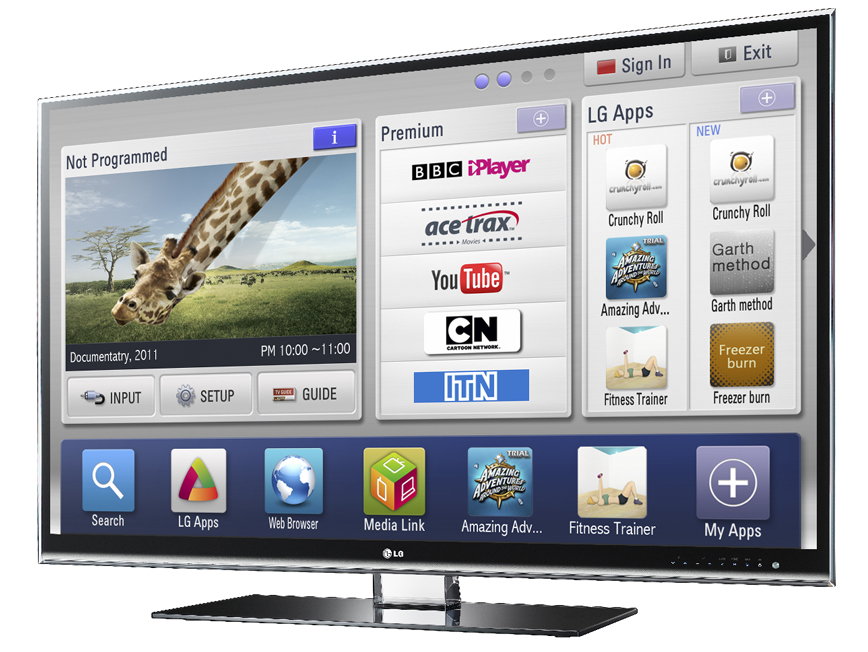IFA 2011 sees giant push towards connected TVs
From internet video to smartphone-style apps

From one end of IFA 2011 to the other, the hottest tech trend has undoubtedly been the rise and rise of internet-connected TVs in general and Smart TVs in particular.
Proof of that comes in the announcement on Thursday that LG, Philips and Sharp were teaming up to promote an open standard for TV apps that aims to emulate the success of smartphone and tablets appsm, with rival TV makers and application developers being encouraged to climb on board.
The reasons why TV makers would want to do so are clear: first, 3D is fast becoming the default for new TVs available in the shops and so TV makers will soon need something new to sell; it could enable them to claim back some of the home entertainment territory lost to PC makers in recent years; and, presumably, they stand to make a whole chunk of change on imposing Apple-style levies on developers who want to get their apps on TVs.
Open standards
The new Smart TV standard will be based on other open standards such as HTML5, CE-HTML and HbbTV that will enable application developers to reduce the number of platforms they have to support and so speed up application development - or at least that's the hope.
The potential benefits to all of us as TV viewers is that we'll be able enjoy a more relaxing interactive, TV-centric experience than you can enjoy with laptops and smartphones already, whether that's chatting to friends on Facebook or Twitter, catching up with your TV viewing using services like BBC iPlayer or even streaming movies or playing multi-player games.
Can't we all just get along?
The big but - and it is a big but - is whether rival TV makers will be prepared to play ball. Sony, Panasonic, Samsung and Toshiba have yet to sign up to the Smart TV standard, making them potentially very formidable opponents. Sony, in particular, is very fond of promoting its own proprietary standards, although it's arguably had a lot more losers than winners in recent times.
Another potential problem is what happens to the applications themselves: are we prepared to see our internet-connected TVs infested with malware brought by unfettered access to an Android-style marketplace? Or will TV makers seek to limit our freedom to choose and use the apps we want by creating an Apple-style walled garden?
Sign up for breaking news, reviews, opinion, top tech deals, and more.
What do you think? Sound off in the comments